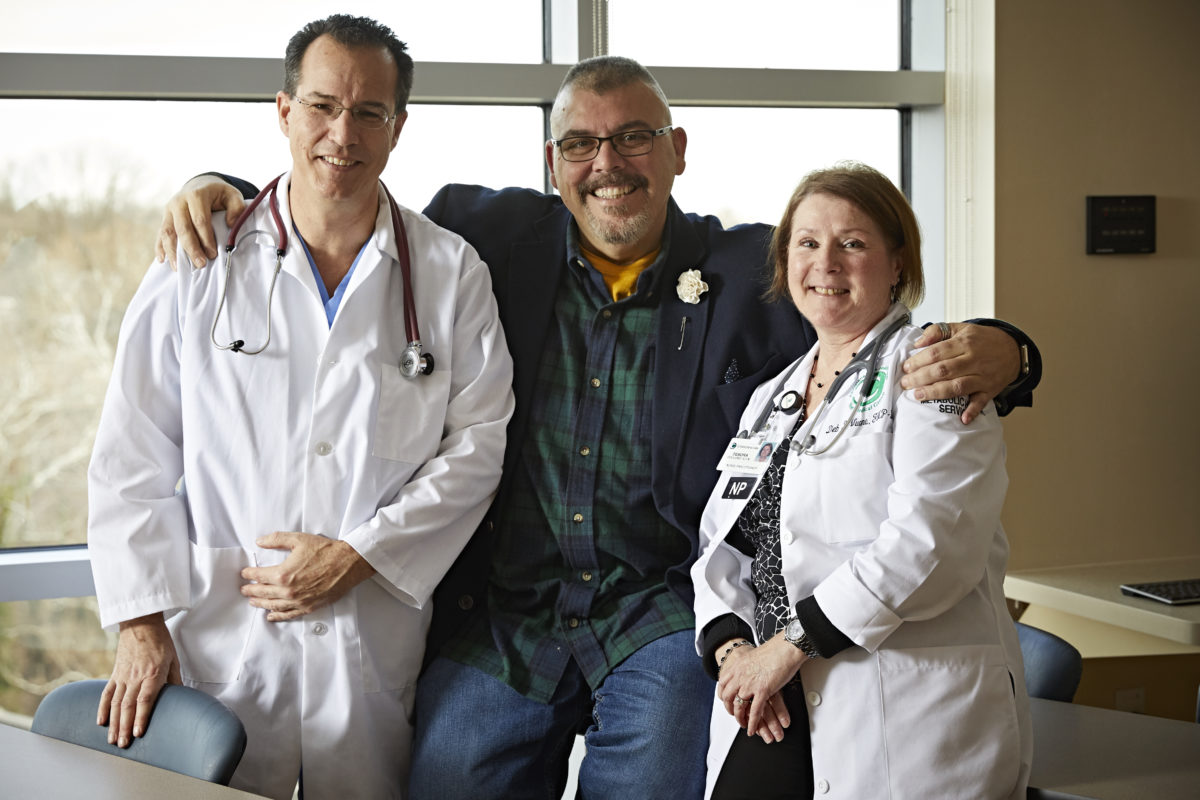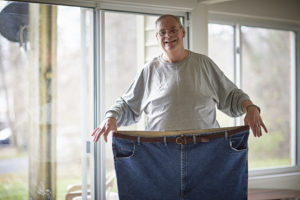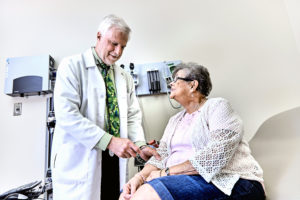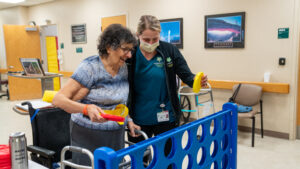“Obesity is a serious disease that has grown so rapidly, it has changed the medical landscape in less than a generation, and it is causing health costs to rapidly rise,” said Michael Peters Jr., M.D., FACS, FASMBS, medical director of Bariatric Surgery at Christiana Care Health System.
To tackle this complex health challenge, Christiana Care has developed a full spectrum of weight management services for children, adolescents and adults. These include dietary consultations with physicians and dieticians, programs targeting lifestyle and food choices that develop healthy habits, pharmacological regimes that can boost the effectiveness of lifestyle changes, and bariatric surgery, which can reduce weight by 30 percent.
“It is valuable to look at obesity from different angles, because there are many misconceptions,” Dr. Peters said. “For one thing, obesity is not a disease of sloth or overconsumption, but a multifaceted illness. It has genetic, environmental and public health components, and is almost infectious in its presentation, affecting 17 percent of American youth and close to 36 percent of adults.”
In keeping with its commitment to advancing health issues of vital importance to the community, Christiana Care held a day-long summit on the causes, treatment and prevention of obesity, Oct. 7. The Bariatric Summit 2016: Cradle to Cure drew more than 200 health providers and covered the impact of weight bias, medications, obesity in pregnancy and pediatric medicine, new therapies and surgical options, as well as the management of the post-bariatric surgery patient, especially post-surgical hypoglycemia. Four of the presentations were given by Christiana Care providers. Dr. Peters chaired the summit in addition to a meeting of the Delaware Chapter of The American Society for Metabolic & Bariatric Surgery (ASMBS) that followed. The non-profit ASMBS is dedicated to metabolic and bariatric surgery, and obesity-related diseases and conditions.
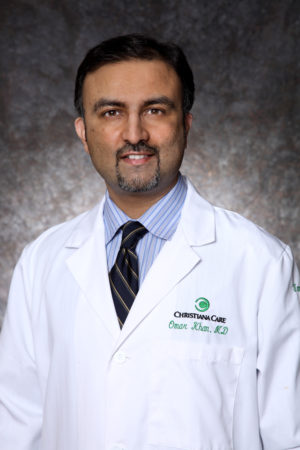
“We know that prevention of obesity and weight management are critical to reduce chronic diseases such as high blood pressure, high cholesterol and diabetes,” said Omar A. Khan, M.D., MHS, FAAFP, service line physician leader of Primary Care & Community Medicine and medical director of Community Health & the Eugene duPont Preventive Medicine & Rehabilitation Institute at Christiana Care. “In addition to our services highlighted in this conference, we partner with colleagues in public health agencies to deliver important messages in communities around healthy eating and active living.”
An example is Camp FRESH, an eight-week summer camp that encourages teens from low-income families to plan and prepare healthy meals, experience fun, healthy activities such as gardening and yoga, and learn about the health consequences of smoking, drugs and excessive stress. “These are high school students who become ambassadors in their communities for healthy lifestyles and achieve better health themselves,” Dr. Khan said.

In the keynote address at the Bariatric Summit keynote, Amber Huett-Garcia, MPA, vice-chairman of the Obesity Action Coalition, a non-profit advocacy organization, spoke about weight bias, which she views as the last “socially acceptable form of discrimination.” Because of the bias, patients often delay seeking help, and providers may be reluctant to address weight issues, resulting in fewer successful medical appointments.
Presenters at the summit highlighted Christiana Care’s multidisciplinary approach to weight management, including experts in surgical, medical and nutritional aspects of obesity.
James Lenhard, M.D., FACE, FACP, chief of Endocrinology and Metabolism, director of the Center for Diabetes & Metabolic Diseases and medical director of the Weight Management Center at Christiana Care, offered an overview of medications and Delaware obesity data. During the last decade Delaware has been in the top third of states for obesity, and 30.7 percent of Delawareans age 18 and older, suffered from the disease in 2014.
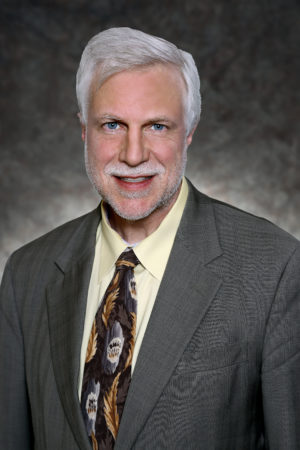
Dr. Lenhard said the U.S. National Institutes of Health guidelines for treating obesity recommend patient assessment that includes the motivation for change, advising patients on how weight loss can be achieved, assisting patients in reaching their goal and continuing to encourage their efforts. Motivated patients who wish to change their lifestyle and diet typically experience the most benefit from pharmacotherapy as an added treatment.
Gabrielle Marlow, MS, RD, LDN, CDE, nutrition program manager of the Weight Management & Bariatric Surgery Program, talked about the changes in diet that accompany bariatric surgery. A full-size adult stomach has the capacity of a cantaloupe, but after bariatric surgery it has the capacity of an egg, which means meals measure about half a cup. As a result, patients eat multiple small meals a day, monitoring protein intake. They drink water before and after meals — not with meals — with the goal of drinking at least 48 ounces a day.
“Changes in diet can be fairly dramatic, but the body is very adaptive,” Marlow said.
Caitlin A. Halbert, D.O., MS, surgeon at the Christiana Institute of Advanced Surgery, talked about new technologies in bariatrics that are getting attention from providers and potential patients. Among the devices highlighted in her talk were three approaches that have earned U.S. Food and Drug Administration approval. Intragastric balloons involve one or more saline-filled silicone balloons placed in the stomach, limiting how much a patient can eat. The Vbloc Vagus neuromodulator uses an implanted vagal nerve stimulator to block hunger signals to the brain. The AspireAssist Gastric Emptying System allows a patient to use an implanted stomach tube to empty up to 30 percent of a meal.
Endocrinologist Amy B. Wachter, M.D., outlined steps for diagnosis and management of post-bariatric hypoglycemia, telling the story of a 30-year-old female patient who had gastric bypass surgery and lost 100 pounds. Two years later the patient complained of feeling weak, shaky and light-headed after eating. The incidence of such hypoglycemia has been small – in two studies, between 0.20 percent and 0.36 percent of patients who’ve had gastric bypass surgery. Typically, once hypoglycemia is verified, treatment involves changes in diet.
“Fortunately we have strong data for successfully treating this issue with diet,” Dr. Wachter said. Follow-up approaches include the use of medication, the addition of a gastric feeding tube, reversal of the gastric bypass surgery or resection of the pancreas.
Weight-management knowledge is power
Christiana Care offers a variety of lectures, classes and community events that help to empower people to take control of their weight. To learn more, visit our online Events & Classes calendar and select the “weight management” category of upcoming events.
